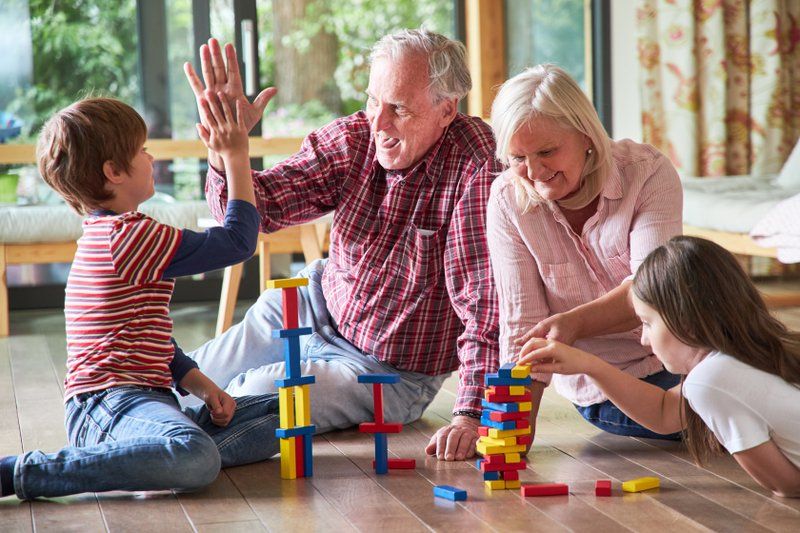
Intergenerational programs in assisted living communities are gaining popularity due to their numerous benefits . These programs bring together different age groups, creating meaningful connections that enhance the lives of both older adults and younger participants. By focusing on the positive outcomes of these interactions, we can better appreciate the value they bring to assisted living environments.
1. Intergenerational Programs Reduce Loneliness
Intergenerational programs foster social connections , reducing feelings of isolation among older adults. Regular interactions with younger generations provide residents with new social opportunities. These relationships can lead to long-lasting friendships, significantly improving residents’ overall happiness. Engaging with youth also keeps seniors socially active, preventing loneliness.

Residents look forward to intergenerational activities, breaking the monotony of daily routines. These programs introduce fresh faces and new conversations into their lives. The variety of interactions helps residents stay mentally sharp and emotionally connected. As a result, the community becomes more vibrant and socially inclusive.
Participating in intergenerational programs encourages older adults to share their life experiences. Storytelling and mentorship allow them to feel valued and respected. These exchanges benefit the residents and the younger participants, fostering mutual understanding. Through these programs, seniors find a renewed sense of purpose.
2. Improved Mental Health and Cognitive Function
Engaging in intergenerational activities stimulates the mind and enhances cognitive function. Programs that include games, puzzles, and learning opportunities challenge the brain. These activities can help delay cognitive decline and improve memory retention. The mental engagement provided by these programs keeps residents mentally active and alert.
Younger participants bring energy and enthusiasm, which positively impacts residents’ moods. This interaction can also reduce symptoms of depression and anxiety in older adults. The joy and laughter shared during activities uplift spirits and create a positive atmosphere. These emotional benefits contribute to overall mental well-being.
Learning from younger generations can also introduce residents to new skills and technologies. Whether using a smartphone or exploring social media, these interactions keep seniors intellectually curious. Staying updated with modern trends gives them a sense of inclusion in today’s fast-paced world. This ongoing learning promotes a healthy and engaged mind.
3. Intergenerational Programs Can Improve Physical Health
Intergenerational programs often involve physical activities that promote health and mobility. Gardening, walking, or light exercises encourage movement and physical engagement. These programs help residents stay active, improving their overall physical health. Regular physical activity can lead to better balance, strength, and flexibility.
The presence of younger participants often motivates residents to be more physically active. Children and teens can inspire seniors to join in on activities they might otherwise avoid. The energy and excitement of youth make physical activities more enjoyable and less of a chore. As a result, residents are more likely to maintain an active lifestyle.
Active participation in these programs can also enhance residents’ appetite and sleep patterns. Physical exertion, combined with social interaction, promotes better sleep and overall well-being. Improved physical health also contributes to a higher quality of life in assisted living communities. These benefits make intergenerational programs a valuable addition to residents’ daily routines.
4. Strengthens Community Bonds and Relationships
Intergenerational programs strengthen the sense of community within assisted living environments. These activities connect residents, staff, and younger participants for a shared purpose. The collaboration fosters a strong sense of belonging among all participants. This unity helps create a more supportive and connected community.

Residents develop meaningful relationships with younger participants that extend beyond the program itself. These bonds can lead to ongoing visits and interactions, enriching the lives of everyone involved. The relationships formed through these programs contribute to a sense of family within the community, enhancing the overall living experience.
The involvement of local schools and youth organizations also strengthens ties with the broader community. Intergenerational programs often include student visits, which help build connections between the assisted living community and local schools. These relationships create a sense of pride and involvement for residents. Through partnerships, the community becomes a more integral part of the neighborhood.
5. Increased Sense of Purpose and Fulfillment
Participating in intergenerational programs provides residents with a renewed sense of purpose. Engaging with younger generations gives them a reason to look forward to each day. The opportunity to mentor or share their experiences fulfills a deep need for meaning. This sense of purpose significantly enhances their emotional well-being.
Residents often feel a sense of accomplishment through their contributions to these programs. Whether teaching a skill or sharing wisdom, their involvement is valued. This recognition boosts their self-esteem and confidence. Feeling useful and appreciated has a profound impact on their overall happiness.
The joy of giving back to the younger generation cannot be underestimated. Residents take pride in positively influencing the lives of children and teens. This intergenerational exchange brings fulfillment and joy to their lives. The satisfaction derived from these interactions contributes to their overall sense of well-being.
6. Benefits for Younger Participants
Intergenerational programs also benefit the younger participants. They offer them valuable life lessons from older adults. The wisdom and experience shared by residents can shape the perspectives and attitudes of the younger generation. This interaction fosters respect and appreciation for the elderly.
Through these programs, younger participants gain a sense of social responsibility and empathy. Engaging with older adults helps them develop compassion and understanding, essential for building strong, caring individuals. The experiences gained in these programs can also influence their behavior and relationships in the future.
The bonds formed through intergenerational programs also help bridge the generation gap. Younger participants learn to value and respect the contributions of older generations. These relationships challenge stereotypes and promote inclusivity. The mutual respect developed in these programs has long-lasting benefits for both age groups.
Intergenerational Programs are a Must
Intergenerational programs in assisted living communities offer many benefits. From enhancing social interaction to improving mental and physical health, these programs positively impact residents and younger participants. Intergenerational programs enrich the lives of everyone involved by fostering strong community bonds and providing a renewed sense of purpose.
Ready to explore the benefits of intergenerational programs? Contact us today to learn how these programs can enhance your assisted living community.
Remember that the personalized care and supportive environments offered by memory care communities aim to enhance the quality of life for individuals with memory-related conditions. Ultimately, the decision hinges on finding the most suitable setting where your loved one can receive the specialized care and support they deserve. For expert guidance and resources, visit Assured Senior Living .


